Thousands of Ukrainian refugees have left the comfortable seaside hotels they had been put up at to travel into an uncertain future. For the time being what this future looks like is: standard caravans, lined up like soldiers, or bunk beds, 20 inside a single tent, or a crowd of mothers with children in a panic, not knowing whether there will be enough sandwiches to go round.
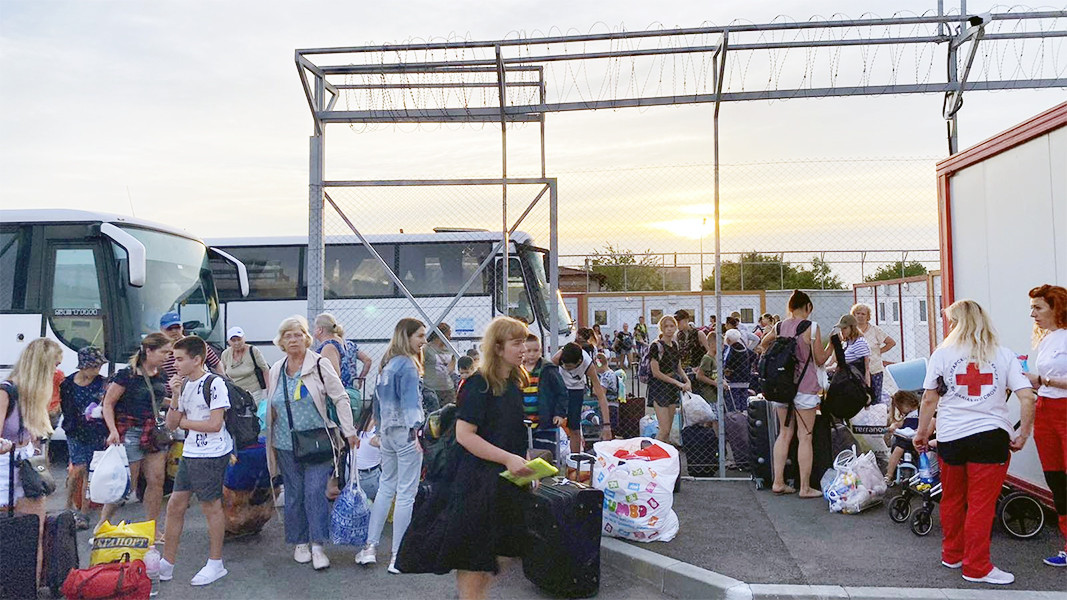
“Where am I going? What is going to happen to me? Am I going to stay?” The Ukrainians fleeing the horrors of war, who had found brief haven in seaside hotels, are now asking these same questions. On Monday the government announced it was halting the plan for their relocation, and would send them in two directions – to the temporary migrant centres at Elhovo and Sarafovo – and from there to state-run facilities all over the country.
Though they have only been put up temporarily in these field camps, the Ukrainian refugees say there is not enough food and water to go round, no hot water and soap, no basic sanitation. While the high wire fencing is an additional stress factor.
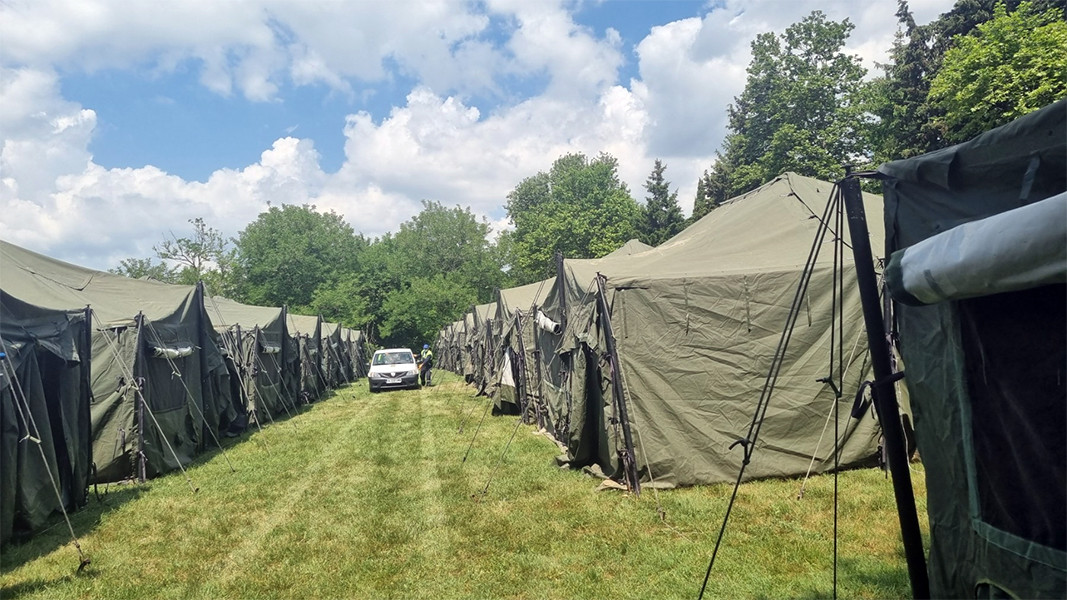
And though some of them have already left for new facilities where they would be accommodated, they did not know to the last where the bus was taking them.
“Things are just not organized,” said one of the Ukrainian women, who left the migrant centre at Elhovo yesterday. “It is not well organized, with all of these people having to wait in the hot sun for hours. What did they draw the list up for? They did it twice – a list of children, disabled people and pensioners, then they re-did it ten times.”
The first group of people left Elhovo yesterday – mothers with children, people with reduced mobility and sick people, to be put up at a children’s camp near Yastrebino from the communist era. But how did the 563 people left at Elhovo spend the night there?

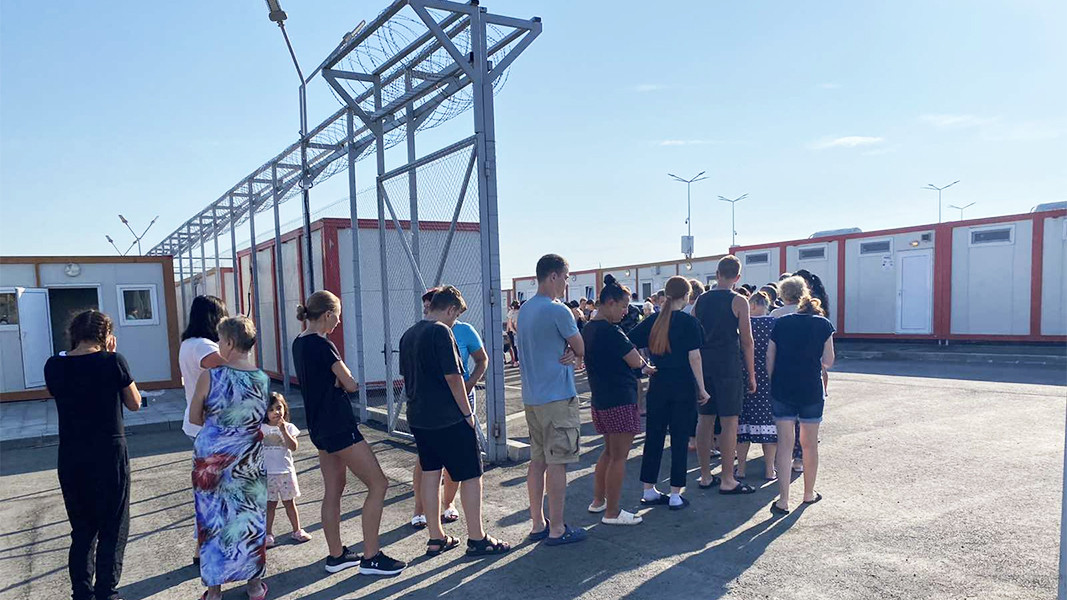
Yulia, who comes from Mykolaiv with her three children, has already been put up at a facility belonging to Maritsa Iztok Mines. She admits she was terrified by the conditions in Elhovo: “It is a terrible feeling there – like a camp with wire fences.” She says she is thankful for the help and likes her new home, where, according to initial information she will be able to stay until September. Yulia is hoping to find a job soon.
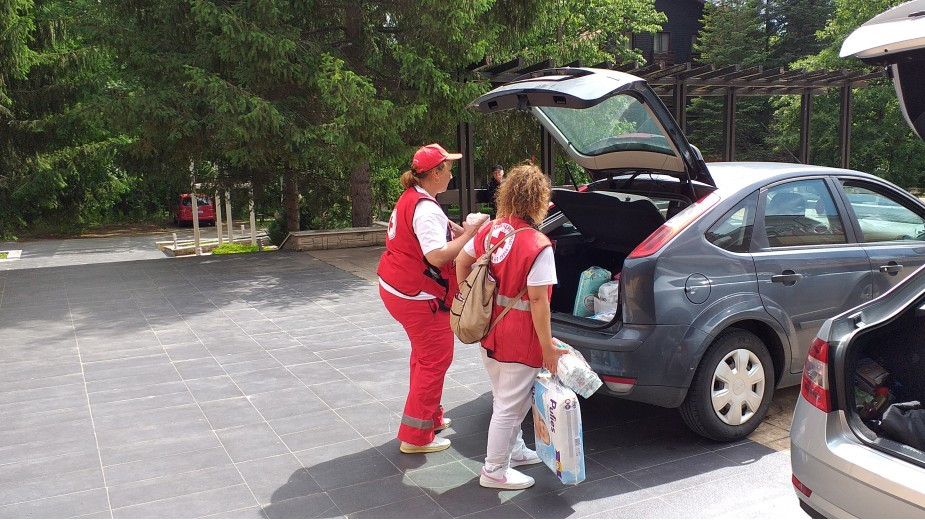
“As always we have brought everything we are doing to the point of hysterics and are on the point of ruining it all,” says culturologist Ivaylo Ditchev, as he comments on the tensions generated by the scathing words in the video address by Deputy Prime Minister Kalina Konstantinova and the scrapping of the plan for the refugees’ relocation.
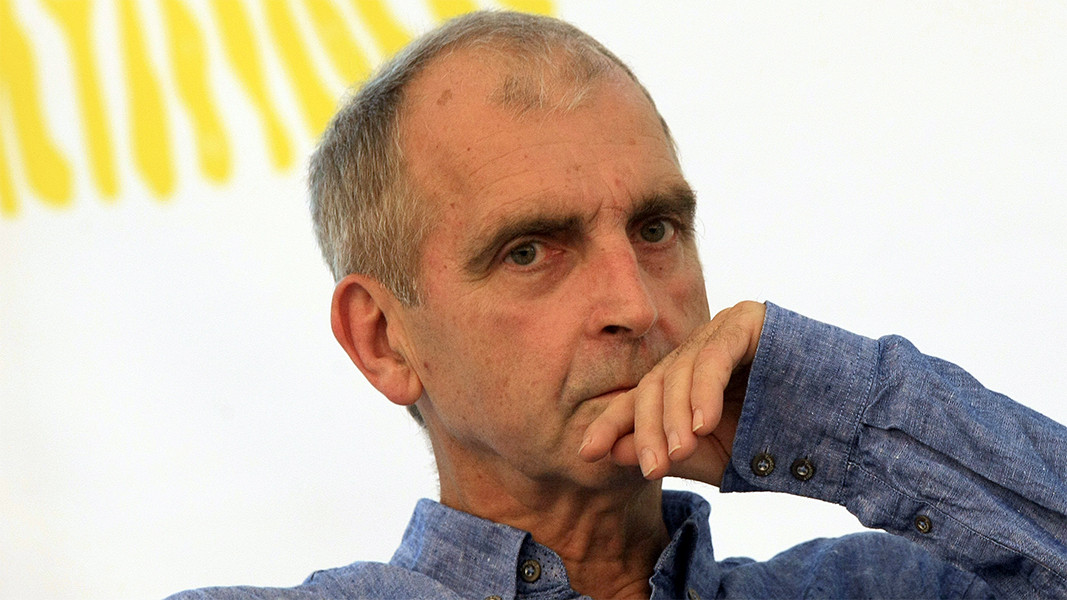
“Our government offered more than it should have when it put them up at these luxury hotels,” Ivaylo Ditchev says. “It was clear a long time ago they would have to leave, and of course, there was disappointment. If we want foreigners to be integrated in the labour market, they need to be living in big centres where there are jobs available. Many of the Ukrainian women are in an active age, their children need to socialize as well. We made the same mistake that we did with the refugees from Syria, whom we sent to the border so as to get rid of them more quickly. We must be prepared – more and more migrants are going to be entering our labour market. They are people we need. But what we don’t have yet is a policy for the integration of refugees in the labour market.”
Interviews by Horizont channel, Radio Kurdzhali and Radio Stara Zagora, BNR
Compiled by Diana Tsankova
Photos: BNR, BGNES
An international conference “AI and education: The road to innovative teaching and learning” brings together 50 teachers from the Bulgarian schools around the world on 4 and 5 April in London. The event, taking place under the national programme of..
People are increasingly freeing up space for technology that they manage and keep under control. Artificial intelligence is quickly settling into this shared space. AI has been entering classrooms in recent years to bring the..
Today, 2 April, on Autism Awareness Day, the Burgas Bridge will be illuminated in blue as a sign of empathy, the Municipality of Burgas announced. The day was established in 2007 by the UN General Assembly to ensure that every society creates..
April 8 is the day when Roma people around the world celebrate their identity. " International Roma Day is a time to show that we are part of the..
Every Bulgarian school abroad has its own story, and that of the Rodna Stryaha Bulgarian school in Cyprus began in 2015. Its foundations are built on..
President Rumen Radev will today attend the opening ceremony of Forest Week in front of St Alexander Nevsky Cathedral. The theme of this year's..

+359 2 9336 661
